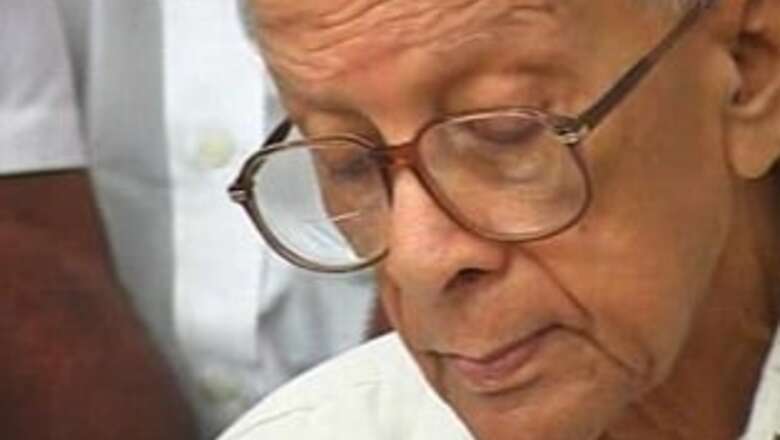
views
Kolkata/New Delhi: Veteran Marxist leader Jyoti Basu died in a Kolkata hospital on Sunday. He was 95.
"I have to give you a sad news that Jyoti babu is no longer with us," Biman Bose, chairperson of the Left Front coordination committee, announced to reporters a little around 1230 hrs.
Basu, who had suffered multi-organ failure was on a temporary pacemaker since late last night.
Basu's personal physician Dr Ajit Kumar Maity said that the veteran leader breathed his last at 1147 hrs IST at the AMRI Hospital where he was admitted with pneumonia on January one. He was put on a ventilator on January 6.
Union Home Minister P Chidambaram, who was in Kolkata, said: "We have just learnt that Jyoti Basu has passed away. He strode like a colossus on the Indian political scene for several decades. He was a great patriot, a great democrat. He lived a full life."
"For the last fortnight, he suffered a lot. The West Bengal government has provided him with the best medical care in the country. We are deeply sad at his passing away. I offer my sincere condolence to his family and the people of West Bengal,” said Chidambaram.
Basu, a widower, died at 11.47 a.m. He leaves behind his only son Chandan.
A charismatic leader, he served as West Bengal Chief Minister from June 1977 to November 2000, heading five successive Left Front governments. Prime Minister Manmohan Singh described him as "a great son of India' on his visit to Kolkata on Saturday.
The CPI-M veteran, who helped prop up four coalition regimes in New Delhi despite himself never venturing beyond the state assembly, was admitted to the AMRI Hospital on Jan 1 following chest congestion and infection.
He was shifted to the Intensive Cardiac Care Unit (ICCU) on January 2, and put on ventilator support on January 6 after the respiratory problem became acute.
Many of the CPI-M leaders and supporters, who had gathered near the hospital in large numbers hearing of the worsening condition of their leader, seemed inconsolable.
Basu reached the zenith of his political career in 1996 when a combination of parties gave birth to the United Front nationally and unanimously asked Basu to lead the federal government as prime minister.
However, the CPI-M declined the offer saying it would not head a national government whose policies it would not be able to control.
Basu also played the kingmaker's role adroitly. He helped in stitching together coalition governments led by V P Singh in 1989, H D Deve Gowda in 1996 and I K Gujral in 1997.
In 2004, Basu and another CPI-M stalwart Harkishan Singh Surjeet impressed upon the Left parties to lend outside support to the Congress-led United Progressive Alliance (UPA) government of Manmohan Singh.
Born on July 8, 1914 in Kolkata, Basu became a barrister from London's Lincoln Inn but decided to embrace communism after coming into close contact British Communist leaders like Harry Pollitt and Rajani Palme Dutt.
On returning to India, Basu became a whole-timer of the Communist Party of India (CPI) and worked among railway workers. He won his maiden election to the Bengal Legislative Assembly in 1946 from the Railway Constituency, and fast emerged as the most effective voice of the opposition in the House.
After India's independence, Basu was elected to the state Legislative Assembly on 11 occasions.
When the CPI split in 1964, Basu became one of the founding leaders of the CPI-M.
In 1967 and 1969, Basu was deputy chief minister of consecutive United Front governments.
He lost his only election to the assembly in 1972, but became the chief minister five years later heading the first Left Front government.
Under Basu's leadership, the Left Front government brought about agrarian reforms through Operation Barga, devolution of power to local rural bodies or panchayats and introduced various relief measures and experimented in agricultural development through government support to the small holdings.
Basu stepped down for health reasons in November 2000, but as the CPI-M Politburo member he continued to play a big role in the party and national politics.
(With inputs from IANS, PTI and CNN-IBN Correspondents)










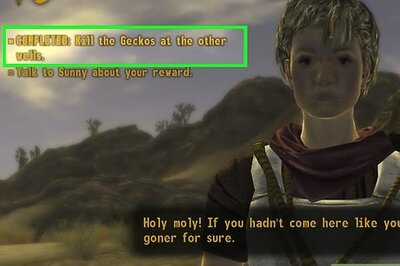
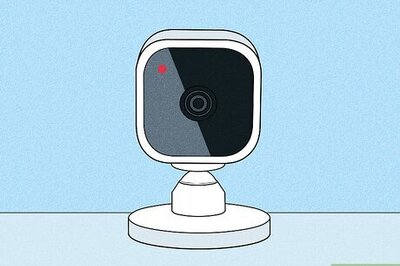


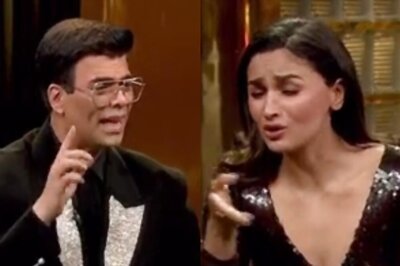
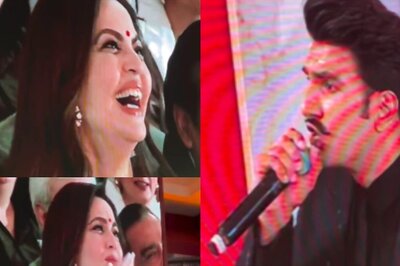


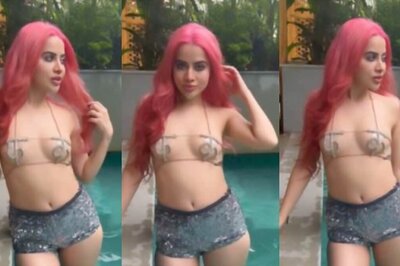
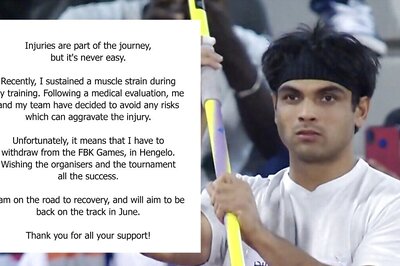
Comments
0 comment